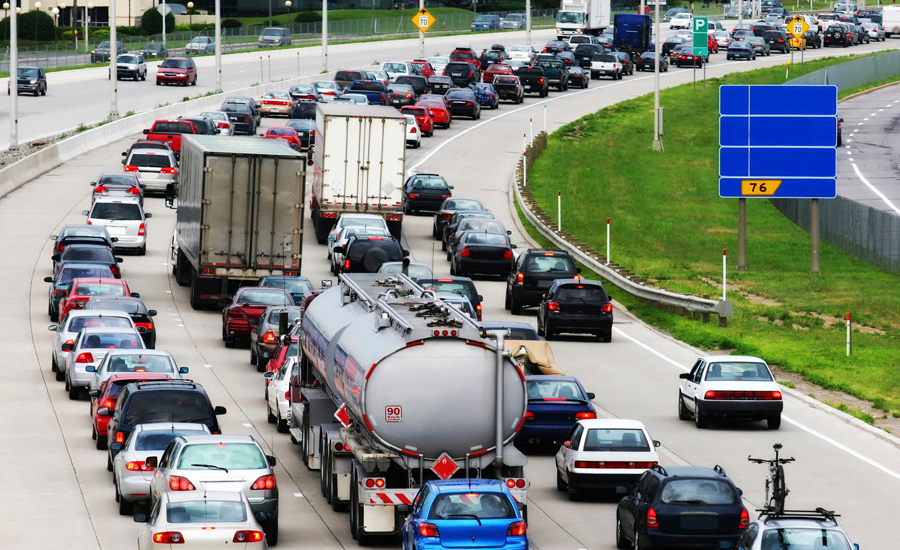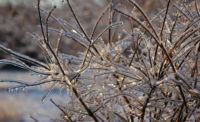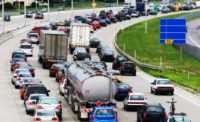Don’t underestimate danger of driving while sleepy

It’s probably not a coincidence that Drowsy Driving Prevention Week® – which officially runs through Sunday – is timed for just after most Americans change their clocks for a return to standard time from Daylight Savings Time. Although the fall adjustment gives people an extra hour, it’s only for one night, and still leaves us struggling to cope with a new sleep schedule.
Driving while sleep-deprived is responsible for more than 6,400 U.S. deaths annually, according to the National Sleep Foundation (NSF). These fall asleep crashes are often caused by voluntarily not getting the sleep you need.
In addition to sleep disorders such as obstructive sleep apnea and narcolepsy, many Americans simply do not allot enough time for sleep. Not only does insufficient sleep affect their health, performance, and general safety, it also affects a driver's ability to safely operate a motor vehicle.
Like alcohol, sleep deprivation impairs judgment and decision making, and drivers overestimate their ability to perform. Ironically, instead of slowing response times to preserve accuracy, sleep-deprived individuals often increase speed at the expense of making more mistakes (ie, become “fast and sloppy”) and take greater risks.
The NSF says impairment from sleep loss is comparable to that of alcohol intoxication with 24 hours of continuous wakefulness resulting in impairments in neurobehavioral performance similar to that induced by a blood alcohol concentration of 0.10 g/dL.
The NSF Drowsy Driving Consensus Working Group’s 2016 report published in Sleep Health Journal concluded that sleep deprivation renders motorists unfit to drive a motor vehicle. Specifically, healthy drivers who have slept for two hours or less in the preceding 24 hours are not fit to operate a motor vehicle. They further agreed that most healthy drivers would likely be impaired with only 3 to 5 hours of sleep during the prior 24 hours.
NSF encourages everyone to prioritize sleep and drive when alert and refreshed.
About the National Sleep Foundation
The NSF is dedicated to improving health and well-being through sleep education and advocacy. Founded in 1990, the NSF is committed to advancing excellence in sleep health theory, research and practice.
References
1. McKnight-Eily, L.R., Liu, Y., Perry, G.S. et al. Perceived insufficient rest or sleep among adults—United States, 2008. MMWR. 2009; 58: 1175–1179
2. Czeisler, C.A. Duration, timing and quality of sleep are each vital for health, performance and safety. Sleep Health. 2015; 1: 5–8
3. Powell, N.B., Schechtman, K.B., Riley, R.W., Li, K., Troell, R., and Guilleminault, C. The road to danger: the comparative risks of driving while sleepy. Laryngoscope. 2001; 111: 887–893
4. Lee, M.L., Howard, M.E., Horrey, M.J. et al. High risk of near-crash driving events following night-shift work. Proc Natl Acad Sci. 2016; 113: 176–181
5. Roehrs, T., Burduvali, E., Bonahoom, A., Drake, C., and Roth, T. Ethanol and sleep loss: a “dose” comparison of impairing effects. Sleep. 2003; 26: 981–985
6. Verster, J.C., Taillard, J., Sagaspe, P., Olivier, B., and Philip, P. Prolonged nocturnal driving can be as dangerous as severe alcohol-impaired driving. J Sleep Res. 2011; 20: 585–588
7. Cajochen, C., Khalsa, S.B., Wyatt, J.K., Czeisler, C.A., and Dijk, D.J. EEG and ocular correlates of circadian melatonin phase and human performance decrements during sleep loss. Am J Physiol. 1999; 277: R640–R649
8. Bocca, M.L. and Denise, P. Total sleep deprivation effect on disengagement of spatial attention as assessed by saccadic eye movements. Clin Neurophysiol. 2006; 117: 894–899
9. Venkatraman, V., Chuah, Y.M., Huettel, S.A., and Chee, M.W. Sleep deprivation elevates expectation of gains and attenuates response to losses following risky decisions. Sleep. 2007; 30: 603–609
10. Dawson, D. and Reid, K. Fatigue, alcohol and performance impairment. Nature. 1997; 388: 235
11. Babkoff, H., Zukerman, G., Fostick, L., and Ben-Artzi, E. Effect of the diurnal rhythm and 24 h of sleep deprivation on dichotic temporal order judgment. J Sleep Res. 2005; 14: 7–15
12. Killgore, W.D., Killgore, D.B., Day, L.M., Li, C., Kamimori, G.H., and Balkin, T.J. The effects of 53 hours of sleep deprivation on moral judgment. Sleep. 2007; 30: 345–352
13. Anderson, C. and Dickinson, D.L. Bargaining and trust: the effects of 36-h total sleep deprivation on socially interactive decisions. J Sleep Res. 2010; 19: 54–63
14. Killgore, W.D., Balkin, T.J., and Wesensten, N.J. Impaired decision making following 49 h of sleep deprivation. J Sleep Res. 2006; 15: 7–13
15. Horowitz, T.S., Cade, B.E., Wolfe, J.M., and Czeisler, C.A. Searching night and day: a dissociation of effects of circadian phase and time awake on visual selective attention and vigilance. Psychol Sci. 2003; 14: 549–557
16. McKenna, B.S., Dickinson, D.L., Orff, H.J., and Drummond, S.P. The effects of one night of sleep deprivation on known-risk and ambiguous-risk decisions. J Sleep Res. 2007; 16: 245–252
17. Killgore, W.D., Grugle, N.L., and Balkin, T.J. Gambling when sleep deprived: don't bet on stimulants. Chronobiol Int. 2012; 29: 43–54
Looking for a reprint of this article?
From high-res PDFs to custom plaques, order your copy today!





